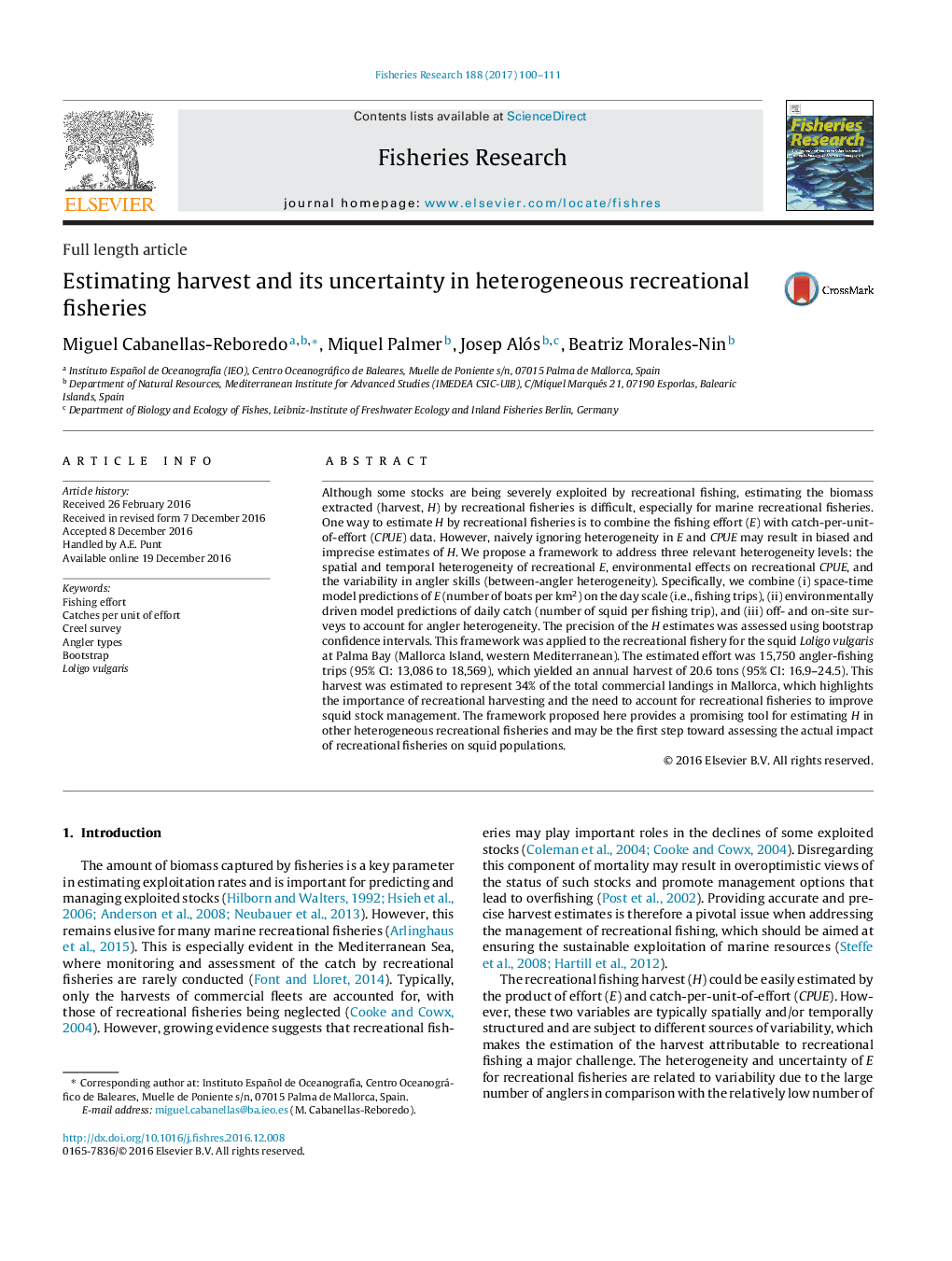| کد مقاله | کد نشریه | سال انتشار | مقاله انگلیسی | نسخه تمام متن |
|---|---|---|---|---|
| 5765596 | 1626782 | 2017 | 12 صفحه PDF | دانلود رایگان |
- To include angler heterogeneity improves the accuracy of the harvest estimations.
- Recreational squid harvest constitutes 34% of commercial landings.
- Recreational harvest should be considered in mixed fisheries management.
Although some stocks are being severely exploited by recreational fishing, estimating the biomass extracted (harvest, H) by recreational fisheries is difficult, especially for marine recreational fisheries. One way to estimate H by recreational fisheries is to combine the fishing effort (E) with catch-per-unit-of-effort (CPUE) data. However, naively ignoring heterogeneity in E and CPUE may result in biased and imprecise estimates of H. We propose a framework to address three relevant heterogeneity levels: the spatial and temporal heterogeneity of recreational E, environmental effects on recreational CPUE, and the variability in angler skills (between-angler heterogeneity). Specifically, we combine (i) space-time model predictions of E (number of boats per km2) on the day scale (i.e., fishing trips), (ii) environmentally driven model predictions of daily catch (number of squid per fishing trip), and (iii) off- and on-site surveys to account for angler heterogeneity. The precision of the H estimates was assessed using bootstrap confidence intervals. This framework was applied to the recreational fishery for the squid Loligo vulgaris at Palma Bay (Mallorca Island, western Mediterranean). The estimated effort was 15,750 angler-fishing trips (95% CI: 13,086 to 18,569), which yielded an annual harvest of 20.6 tons (95% CI: 16.9-24.5). This harvest was estimated to represent 34% of the total commercial landings in Mallorca, which highlights the importance of recreational harvesting and the need to account for recreational fisheries to improve squid stock management. The framework proposed here provides a promising tool for estimating H in other heterogeneous recreational fisheries and may be the first step toward assessing the actual impact of recreational fisheries on squid populations.
Journal: Fisheries Research - Volume 188, April 2017, Pages 100-111
